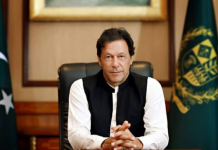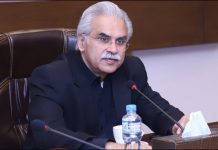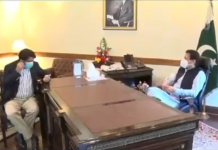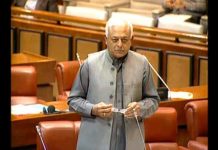ISLAMABAD, Oct 03 (APP): Over 50 federal and provincial planning officials have been trained on integrating carbon markets into government project approvals in an effort to support Pakistan to combat climate change and meet its international obligations.
SPAR6C, in collaboration with the Ministry of Climate Change and Environmental Coordination and the Ministry of Planning, Development and Special Initiatives, organized a two-day Carbon Market Training Workshop for Federal and Provincial planning and development officials, a news release said.
The two-day workshop brought together officials responsible for appraising public investment projects. The event aimed to enhance their understanding of carbon credits and how these can be leveraged to reduce greenhouse gas emissions, align with global climate goals and secure vital international financing.
Funded by the German Federal Ministry for Economic Affairs and Climate Action, the SPAR6C programme supports developing countries, including Pakistan, in navigating carbon markets.
This initiative is part of the Supporting Preparedness for Article 6 Cooperation (SPAR6C) programme, aimed at boosting Pakistan’s participation in international carbon markets, which could generate between $2 billion and $5 billion by 2030.
Pakistan has set a bold target of cutting projected emissions by 50% by 2030, with 35% of this reduction conditional on international financial support. The Paris Agreement’s Article 6 provides new avenues for the country to access carbon markets and secure funding for sustainable projects.
Speaking on the occasion, Secretary of the Ministry of Climate Change and Environmental Coordination, Aisha Humera, emphasized the importance of this opportunity: “This is a golden chance to learn how to claim carbon credits. Few in Pakistan have this skill, and it can position you as a leader in your field.”
German Embassy representative Janine Rohwer highlighted the importance of carbon markets for both Pakistan and Germany in meeting climate targets: “Aligning with international standards will make private investment more attractive for Pakistan.”
The workshop also featured insights from Dr Xianli Zhu, Senior Economist at UNEP-CCC, who explained how Pakistani officials could steer public investment toward low-emission activities and attract private funding for emission reduction projects.
Participants from across Pakistan, including Punjab, Khyber Pakhtunkhwa, and Azad Jammu & Kashmir, welcomed the training, noting that carbon credits could be a game-changer for sectors like forestry and hydropower.
Afrasiyab Khattak, Chief Secretary of KPK’s Planning and Development Department, commented on the province’s significant potential for carbon credits through forestation: “This workshop has shown me how transformative carbon markets can be for KPK’s forest cover.”
Despite the enthusiasm, participants acknowledged that more work is needed to secure buy-in from senior political leadership.
Mehnaz Kant, Chief Agricultural P&D in AJK, urged for similar workshops targeting ministers and decision-makers to build a comprehensive understanding of carbon markets at all levels of government.
As Pakistan races to meet its climate goals, experts and officials agree that carbon markets could play a pivotal role. The workshop concluded with a consensus that these markets offer a unique opportunity not just to mitigate the country’s carbon footprint, but also to generate substantial revenue for sustainable development.
Over 50 federal, provincial officials trained on integrating Carbon Markets into project development
مضمون کا ماخذ : لکی لیپریچون














